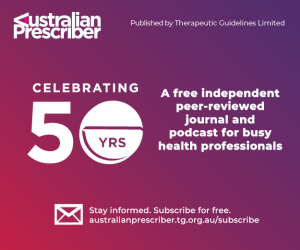Nearly 350 heart attacks, strokes or heart-related deaths could have been prevented over the next five years if 27,000 heart health checks had not been missed or delayed due to COVID-19, new modelling released by the Heart Foundation has revealed.
At least 27,000 Australians have missed out on early detection of heart attack and stroke risk during the pandemic, the Heart Foundation says, meaning their risk has gone unmanaged and will potentially lead to a rise in preventable heart events and deaths in the future.
The Heart Foundation’s Chief Medical Adviser and interim Group CEO, Professor Garry Jennings, said delays in people having their risk assessed could prove fatal and lead to a wave of heart disease.
“People have been reluctant to seek routine medical attention during the pandemic and that includes having preventive health checks like a Heart Health Check. This could have serious and even fatal consequences,” Professor Jennings said.
“The Heart Health Check is about detecting atherosclerotic disease early and breaking the cycle of CVD and other chronic diseases by identifying risk factors and managing them appropriately.”
Professor Jennings said missed or delayed heart health checks meant silent conditions such as hypertension and hypercholesterolemia may go undiagnosed and potentially worsen, increasing people’s risk of a heart event later on.
“What we don’t want to see is a drop in heart health screening coupled with what we are seeing overseas as a result of the pandemic, in that people with heart attack symptoms are waiting longer to seek medical attention.
“This could create a dangerous situation and a backlog of people who need preventative heart health care for years to come, placing additional pressure on general practice.”
The Heart Foundation modelling shows that at least 27,000 fewer heart health checks were conducted from March 2020 to July 2021 due to the impact of COVID-19.
The test is the first preventative health assessment MBS item to incorporate absolute cardiovascular disease risk calculation and facilitate yearly assessment.
According to the Heart Foundation, states least affected by the pandemic, including Western Australia and Queensland, had the highest rates of screening, averaging 30 heart health checks per 1,000 eligible adults, well above the national average of 25 checks per 1,000 adults.
Lockdowns, as well as the resource-intensive rollout of the COVID-19 vaccination program in GP practices, were linked to dramatic drops of up to 40% in people having the check across the country.
The Toolkit was designed to streamline the assessment and management of CVD risk, reducing administrative burden, and allowing general practice to get the most out of financial and quality improvement incentives.
“It offers pre-populated assessment and management templates for Heart Health Checks that make it easier for GPs and practice nurses to collect CVD risk factor information and support patients,” Professor Jennings said.
Ahead of World Heart Day on 29 September, the Heart Foundation has integrated the Toolkit into popular GP software, including Best Practice, which streamlines the check so GPs and practice nurses can focus on their patients’ needs.
The Heart Health Check Toolkit can be found at heartfoundation.org.au/hhc-toolkit








